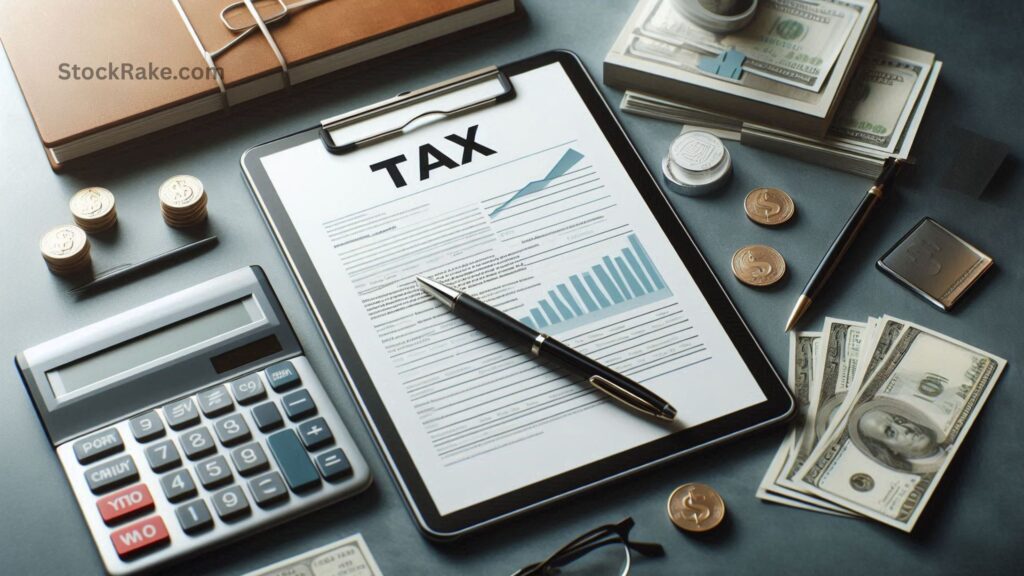Made a profit on your investments this year? Congratulations! 🎉
But before you celebrate too much, let’s talk about something every investor dreads — tax on capital gains.
When you sell your property, mutual funds, or shares for a profit, the government takes a slice of your earnings as capital gains tax. Luckily, with the right strategy and a little planning, you can legally reduce (or even eliminate) those taxes.
This guide breaks down exactly how to do that — in plain English. Whether you’re selling real estate, equity, or other long-term assets, you’ll find practical ways to save thousands in taxes under Indian law.
What is Capital Gains Tax?
Capital gains tax is the levy you pay when you sell a capital asset — anything like land, a house, stocks, bonds, gold, or even jewelry — for more than what you paid for it.

Think of it like this:
You bought an asset → It appreciated → You sold it → The profit is taxable.
There are two main types of capital gains, depending on how long you hold the asset.
| Type | Holding Period | Example Assets | Tax Rate |
|---|---|---|---|
| Short-Term Capital Gains (STCG) | Sold within 12–36 months (varies by asset) | Shares, mutual funds, property | 15% (for equity), as per slab for others |
| Long-Term Capital Gains (LTCG) | Held longer than 12–24 months | Stocks, mutual funds, land, buildings | 10% above ₹1 lakh (for equity), 20% with indexation (for others) |
👉 From FY 2024–25 onwards, the government has simplified the holding period:
- 12 months for all listed securities (like stocks and equity mutual funds)
- 24 months for all other assets
This matters because only long-term assets qualify for special tax exemptions when reinvested — and that’s where smart tax planning comes in.

Also Read: How to Use Moving Averages to Time Your Trades
Why Planning Matters
After the 2018 Budget, long-term capital gains (LTCG) above ₹1 lakh on shares and equity mutual funds are taxed at 10%.
That might not sound like much, but if you’ve made big gains, the tax bill can sting.

Let’s say you sold stocks and made a ₹6 lakh profit.
- Tax-free up to ₹1 lakh
- Remaining ₹5 lakh taxed at 10% = ₹50,000 in taxes
But with proper reinvestment, you could save that ₹50,000 — and let your money keep growing.
1. Sell a House and Buy Another (Section 54)
If you’ve sold a residential property you owned for more than two years, Section 54 of the Income Tax Act lets you avoid paying LTCG tax — provided you reinvest the gains in another house.
✅ Key Rules:
- Buy a new house within 1 year before or 2 years after the sale.
- Or, build one within 3 years after the sale.
- Exemption is the lower of:
- The actual capital gain, or
- The cost of the new property.
Example:
You sell your home for ₹42 lakh, which you bought for ₹20 lakh.
Capital gain = ₹22 lakh.
If you purchase a new home worth ₹22 lakh (or more), you pay zero LTCG tax.
⚠️ Conditions:
- Applies to only one property, unless your total gains are ≤ ₹2 crore, in which case you can claim it for two houses once in a lifetime.
- The new house must be in India.
- Don’t sell the new house for 3 years; if you do, the exemption is reversed.
- Maximum exemption: ₹10 crore.
💬 Pro Tip: If your goal is to upgrade your living space or diversify your property portfolio, this exemption is a smart move that keeps your wealth compounding tax-free.

Also Read: How Can You Reduce Taxes on Your Investment Gains?
2. Sell Other Assets and Buy a House (Section 54F)

Don’t own a house yet? You can still save tax on any long-term capital gain (from land, gold, stocks, jewelry, etc.) by reinvesting in a residential house — under Section 54F.
✅ Key Rules:
- Buy a house within 1 year before or 2 years after selling your asset.
- Or build one within 3 years.
- You must invest the entire sale proceeds (not just the profit) to claim full exemption.
Formula for partial exemption:
Exempted Capital Gain = Capital Gain × (Cost of New House ÷ Sale Proceeds)
⚠️ Conditions:
- Only one house is allowed.
- You must not already own more than one residential house.
- The property should be in India.
- Lock-in period: 3 years.
- Maximum benefit capped at investments made from ₹10 crore of sale proceeds.
Example:
You sell land worth ₹50 lakh with a gain of ₹20 lakh and invest ₹40 lakh in a house.
Then, your exempt gain = ₹20 lakh × (₹40 lakh ÷ ₹50 lakh) = ₹16 lakh.
Only ₹4 lakh is taxable — nice savings!
3. Invest in Government Bonds (Section 54EC)
If property investment isn’t your thing, you can park your gains in government-approved bonds under Section 54EC — a safe, fixed-return option.
✅ Eligible Bonds:
- National Highways Authority of India (NHAI)
- Rural Electrification Corporation (REC)
✅ Key Rules:
- Invest within 6 months from the sale date.
- Maximum investment: ₹50 lakh per financial year.
- Lock-in: 5 years.
- Current interest rate: around 5.25% (taxable).
⚠️ Conditions:
- Bonds cannot be sold or used as loan collateral during the lock-in period.
- Only long-term capital gains from property are eligible (not from equity).
💬 Pro Tip: This option suits conservative investors who prefer steady income and government-backed safety.
4. Capital Gains Account Scheme (CGAS)
What if you haven’t decided where to reinvest yet, but your tax-filing deadline is approaching?
No worries — the Capital Gains Account Scheme (CGAS) lets you temporarily park your gains and claim exemption.
✅ How It Works:
- Open a CGAS account in a public-sector bank before your ITR deadline.
- Deposit your unutilized capital gains there.
- Use the funds within:
- 2 years (to buy a house), or
- 3 years (to build one).
If you don’t use the funds within the timeline, the unspent amount becomes taxable in the year the deadline expires.
💬 Pro Tip: Think of CGAS as your “tax shelter” while deciding the best reinvestment path.
📊 Quick Recap Table
| Section | Asset Sold | Reinvest In | Time Limit | Max Limit |
|---|---|---|---|---|
| 54 | Residential Property | New Residential Property | 1 yr before / 2 yrs after (3 yrs if building) | ₹10 crore |
| 54F | Any Long-Term Asset (not house) | New Residential Property | Same as Sec. 54 | ₹10 crore (sale proceeds) |
| 54EC | Long-Term Asset (property) | Govt Bonds (REC/NHAI) | Within 6 months | ₹50 lakh |
| CGAS | Any LTCG | CGAS Account (for later property investment) | Before ITR deadline | — |
🧠 Expert Tips for Smarter Tax Planning
- Use Indexation Wisely:
For non-equity assets, apply indexation to adjust the purchase price for inflation — it can significantly lower your taxable gains. - Plan Sale Timing:
Selling after the 12/24-month threshold converts short-term gains into long-term — cutting your tax rate almost in half. - Diversify Reinvestment:
You can split your LTCG reinvestment between property and bonds — just ensure each investment meets the section’s rules. - Document Everything:
Keep proof of purchase, sale, and reinvestment (receipts, bank statements, registry papers). The IT Department often requests these during scrutiny. - Consult a Tax Advisor:
Every case is unique. An expert can help structure your sales and investments to maximize exemptions and minimize surprises.

Also Read: How Do Stop-Loss Orders Protect Your Trades?
Case Study: How Ramesh Saved ₹5 Lakh in Taxes
Ramesh sold a plot of land for ₹60 lakh that he had purchased for ₹25 lakh, resulting in ₹35 lakh LTCG.
Instead of paying ~₹7 lakh in tax (20%), he invested:
- ₹25 lakh in a new apartment (under Section 54F)
- ₹10 lakh in REC Bonds (under Section 54EC)
Result?
He legally paid zero LTCG tax, gained a new home, and secured steady interest income.
That’s tax planning done right.
Conclusion: Turn Tax Into an Opportunity
Paying tax on your investment profits may feel unavoidable — but it’s not.
With a clear understanding of capital gains laws and timely reinvestments, you can legally save a substantial amount while growing your wealth.
The key?
Plan before you sell, not after. Align your financial goals with the available exemptions, and let tax laws work for you, not against you.
Frequently Asked Questions (FAQs)
Q1. What’s the difference between Section 54 and Section 54F?
Section 54 applies when you sell a house; Section 54F applies when you sell any other asset and reinvest in a house.
Q2. Can I claim both Section 54 and 54EC simultaneously?
Yes, you can claim both if you meet the conditions — for instance, reinvesting part of your gains in a new house and part in REC bonds.
Q3. What happens if I sell the new house within 3 years?
The exemption claimed earlier will be reversed, and you’ll have to pay tax on those gains in the year of sale.
Q4. Is the interest earned on 54EC bonds tax-free?
No, the interest is taxable as per your income tax slab.
Q5. What if I miss the 6-month window for investing in bonds?
You’ll lose eligibility for Section 54EC benefits — so it’s best to plan your reinvestment timeline early.

